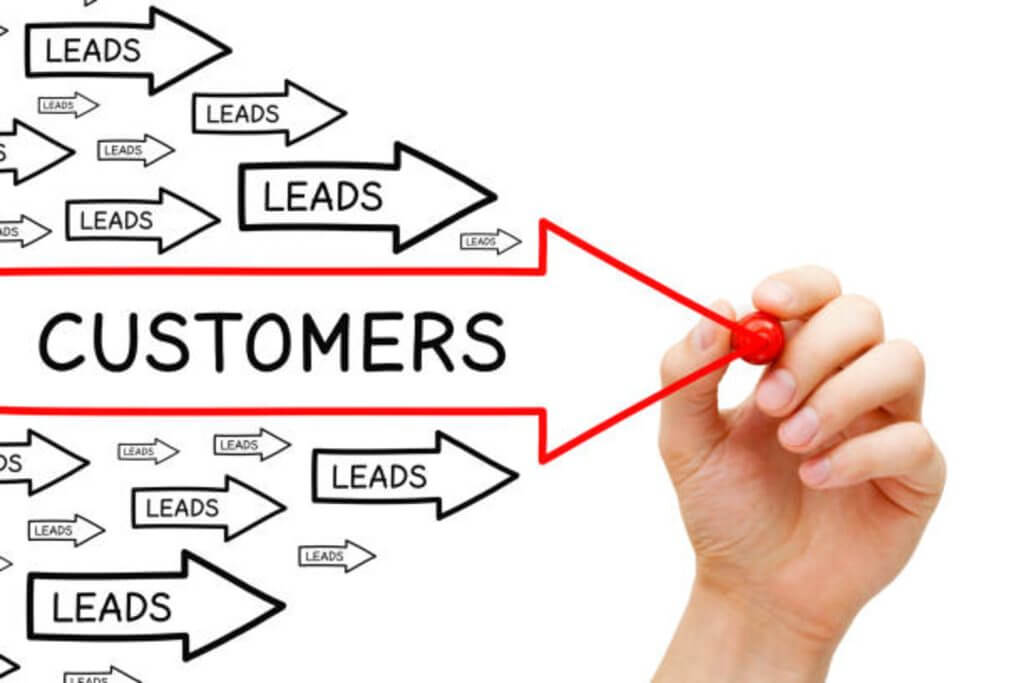
In the intricate landscape of B2B (business-to-business) digital marketing, lead generation stands out as a fundamental pillar. It’s not just about attracting website visitors or accumulating followers on social media; it’s about identifying potential customers who are genuinely interested in your products or services and nurturing them into valuable leads. In this blog, we’ll delve into the world of B2B lead generation, exploring effective strategies to leverage the power of digital marketing for acquiring high-quality leads.
The Essence of B2B Lead Generation
Lead generation, in the context of B2B marketing, involves the initiation of consumer interest or inquiry into the products or services of a business. Unlike B2C (business-to-consumer) lead generation, B2B strategies focus on attracting other businesses or professionals who may have a stake in the services offered. The primary goal is to turn these prospects into leads that can be nurtured and eventually converted into customers.
Key Components of B2B Lead Generation:
Understanding the Target Audience:
Successful B2B lead generation begins with a comprehensive understanding of the target audience. Identify the businesses or professionals that align with your offerings. This involves creating buyer personas that outline the characteristics, challenges, and needs of your ideal customers.
Strategic Content Marketing:
Content is the backbone of B2B lead generation. Create and share content that provides value and addresses the pain points of your target audience. This includes blog posts, whitepapers, e-books, webinars, and other forms of content that showcase your expertise and help build trust with potential leads.
Leveraging SEO (Search Engine Optimization):
Optimizing your online presence for search engines is crucial for B2B lead generation. Identify relevant keywords that your target audience is likely to use when searching for products or services in your industry. Incorporate these keywords into your website content, meta tags, and other elements to improve your search engine rankings.
Email Marketing Campaigns:
Email remains a powerful tool for B2B lead generation. Develop targeted email campaigns that provide valuable content, such as industry insights, case studies, or exclusive offers. Personalize your emails based on the recipient’s role or industry for a more tailored approach.
Social Media Engagement:
Social media platforms are valuable channels for B2B lead generation. Share relevant content, engage with your audience, and participate in industry discussions. LinkedIn, in particular, is a powerful platform for B2B interactions, allowing you to connect with professionals and showcase your expertise.
Effective Use of Paid Advertising:
Paid advertising, when strategically employed, can enhance B2B lead generation efforts. Platforms like Google Ads and LinkedIn Ads allow you to target specific demographics and industries. Craft compelling ad copy and design visually appealing creatives to capture the attention of your target audience.
B2B Lead Generation Strategies: A Deep Dive
Now, let’s explore specific strategies that can elevate your B2B lead generation efforts:
1. Content Marketing and Gated Content:
Content marketing is at the forefront of B2B lead generation. Produce high-quality, informative content that addresses the pain points and challenges of your target audience. This could include blog posts, articles, whitepapers, e-books, and more. To generate leads, consider gating some of your premium content—requiring users to provide their contact information in exchange for access. This allows you to capture leads interested in specific topics or solutions.
Actionable Tips:
- Develop in-depth whitepapers or e-books that provide valuable insights.
- Create landing pages with clear calls-to-action (CTAs) for users to access gated content.
- Promote your gated content through various channels, including social media and email marketing.
2. SEO Optimization for B2B Lead Generation:
A robust SEO strategy is crucial for ensuring your business appears prominently in search engine results when potential leads are looking for relevant information. Conduct thorough keyword research to identify terms your audience is likely to use. Optimize your website content, meta tags, and images to improve your search engine rankings.
Actionable Tips:
- Regularly update your website content to reflect industry trends and keywords.
- Optimize meta titles and descriptions for key landing pages.
- Build high-quality backlinks from reputable websites in your industry.
3. Email Marketing Automation:
Email marketing remains a cornerstone of B2B lead generation, but the key is to move beyond one-size-fits-all campaigns. Implement email marketing automation to deliver personalized and targeted content based on the recipient’s behavior, preferences, and interactions with your website. Automation allows you to nurture leads through the sales funnel efficiently.
Actionable Tips:
- Segment your email list based on factors like industry, job role, or engagement level.
- Create a series of automated emails for different stages of the customer journey.
- Monitor email engagement metrics to refine your automation sequences.
4. Social Media Engagement and Advertising:
Social media platforms, particularly LinkedIn, offer immense potential for B2B lead generation. Engage with your audience by sharing relevant content, participating in industry discussions, and connecting with professionals in your field. Additionally, leverage paid advertising on platforms like LinkedIn and Twitter to target specific demographics and industries.
Actionable Tips:
- Optimize your LinkedIn profile and company page with relevant information.
- Share thought leadership content, industry updates, and engage with your audience.
- Use targeted advertising on LinkedIn to reach decision-makers in your industry.
5. Webinars and Virtual Events:
Hosting webinars and virtual events is an effective way to showcase your expertise, provide value to your audience, and generate leads. Promote your webinars through various channels and collect attendee information for follow-up. Webinars allow you to connect directly with potential leads and position your business as an authority in your industry.
Actionable Tips:
- Choose topics that align with your audience’s interests and challenges.
- Promote your webinars through email marketing, social media, and your website.
- Collect attendee information and follow up with post-event content and offers.
6. Chatbots and Live Chat:
Integrating chatbots or live chat functionality on your website can enhance the user experience and capture leads in real-time. Chatbots can provide instant responses to common queries, collect contact information, and guide users through the information they seek. This immediate interaction can significantly increase the chances of converting visitors into leads.
Actionable Tips:
- Implement a chatbot on key landing pages or during specific user interactions.
- Program the chatbot to ask qualifying questions and collect contact information.
- Train your live chat agents to handle inquiries efficiently and capture lead details.
7. Customer Referral Programs:
Word-of-mouth remains a powerful force in B2B lead generation. Encourage your satisfied customers to refer other businesses or professionals who could benefit from your products or services. Establish a structured referral program that rewards customers for successful referrals.
Actionable Tips:
- Create a referral program that provides incentives for both the referrer and the new customer.
- Promote the referral program through email campaigns, social media, and your website.
- Monitor and acknowledge successful referrals to build a positive relationship with advocates.
8. Account-Based Marketing (ABM):
Account-Based Marketing is a targeted strategy that focuses on specific high-value accounts. Instead of casting a wide net, ABM tailors marketing efforts to resonate with the key decision-makers within a select group of accounts. This personalized approach can be highly effective in B2B lead generation, especially for businesses with a narrow target audience.
Actionable Tips:
- Identify high-potential accounts based on criteria such as industry, size, and location.
- Develop personalized content and campaigns tailored to the specific needs of each account.
- Utilize targeted advertising and direct outreach to engage decision-makers within the identified accounts.
Measuring B2B Lead Generation Success
A crucial aspect of any B2B lead generation strategy is the ability to measure and analyze its success. Here are key metrics to track:
Conversion Rate:
Measure the percentage of website visitors who take a desired action, such as filling out a form or downloading gated content.
Cost Per Lead (CPL):
Calculate the cost associated with acquiring a single lead. This metric helps assess the efficiency of your marketing campaigns.
Lead Quality:
Evaluate the quality of leads by assessing how well they align with your target audience and their likelihood to convert into customers.
Sales-Qualified Leads (SQL):
Identify leads that have progressed through the funnel and are deemed ready for direct sales engagement.
Return on Investment (ROI):
Analyze the overall return on investment for your lead generation efforts by comparing the generated revenue to the costs incurred.
Customer Acquisition Cost (CAC):
Determine the cost of acquiring a new customer, considering the expenses associated with lead generation and conversion.
Lead-to-Customer Conversion Rate:
Measure the percentage of leads that successfully convert into paying customers.
Case Study: HubSpot – B2B Lead Generation Excellence
HubSpot, a leading provider of inbound marketing and sales software, stands as a testament to the effectiveness of B2B lead generation strategies. HubSpot’s success is rooted in its commitment to inbound marketing principles, content creation, and a user-friendly platform. Here’s how HubSpot excels in B2B lead generation:
Inbound Methodology:
HubSpot champions the inbound methodology, emphasizing content creation, social media engagement, and SEO to attract and nurture leads organically.
Comprehensive Content Marketing:
HubSpot is a content powerhouse, producing a vast array of resources, including blog posts, e-books, webinars, and courses. Their content not only showcases expertise but also serves as a valuable resource for businesses seeking solutions.
Lead Magnets and Gated Content:
HubSpot effectively uses lead magnets such as free tools, templates, and comprehensive guides to attract leads. By offering these resources in exchange for contact information, they continually expand their lead database.
Email Marketing Automation:
HubSpot leverages robust email marketing automation to deliver personalized content and nurture leads through automated workflows. This ensures that leads receive relevant information at each stage of the buyer’s journey.

Social Media Engagement:
HubSpot maintains an active presence on social media platforms, sharing industry insights, success stories, and engaging with their audience. Their content strategy extends beyond promotional material to foster meaningful connections.
User-Friendly Platform:
HubSpot’s user-friendly platform attracts businesses looking for a comprehensive solution for marketing, sales, and customer service. The platform itself serves as a tool for lead generation, as businesses adopt HubSpot to streamline their processes.
The Future of B2B Lead Generation
As technology advances and the digital landscape evolves, the future of B2B lead generation holds exciting possibilities. Here are some trends to keep an eye on:
AI-Powered Personalization:
Artificial Intelligence (AI) will play a significant role in enhancing personalization. AI algorithms can analyze vast datasets to predict user behavior and deliver more tailored content to individual leads.
Interactive Content:
Interactive content, such as quizzes, assessments, and calculators, is gaining traction in B2B lead generation. These engaging formats provide a personalized experience and valuable insights for both businesses and their leads.
Voice Search Optimization:
With the rise of voice-activated devices, optimizing content for voice search is becoming essential. B2B marketers will need to adapt their SEO strategies to accommodate the growing use of voice search in professional settings.
Video Marketing for B2B:
Video content is not limited to B2C marketing. B2B audiences are increasingly consuming video content for educational and informational purposes. Incorporating video into B2B lead generation strategies can enhance engagement and communication.
Predictive Analytics:
Predictive analytics will play a key role in identifying high-potential leads. By analyzing historical data and user behavior, businesses can use predictive analytics to prioritize and target leads most likely to convert.
B2B lead generation is a dynamic and multifaceted process that requires a strategic approach. By understanding the unique needs of your target audience, creating compelling content, leveraging digital marketing channels, and embracing emerging trends, you can build a robust B2B lead generation strategy. Whether you’re a startup looking to expand your client base or an established enterprise aiming to stay competitive, the right lead generation strategies can pave the way for sustained growth and success in the ever-evolving B2B landscape.



